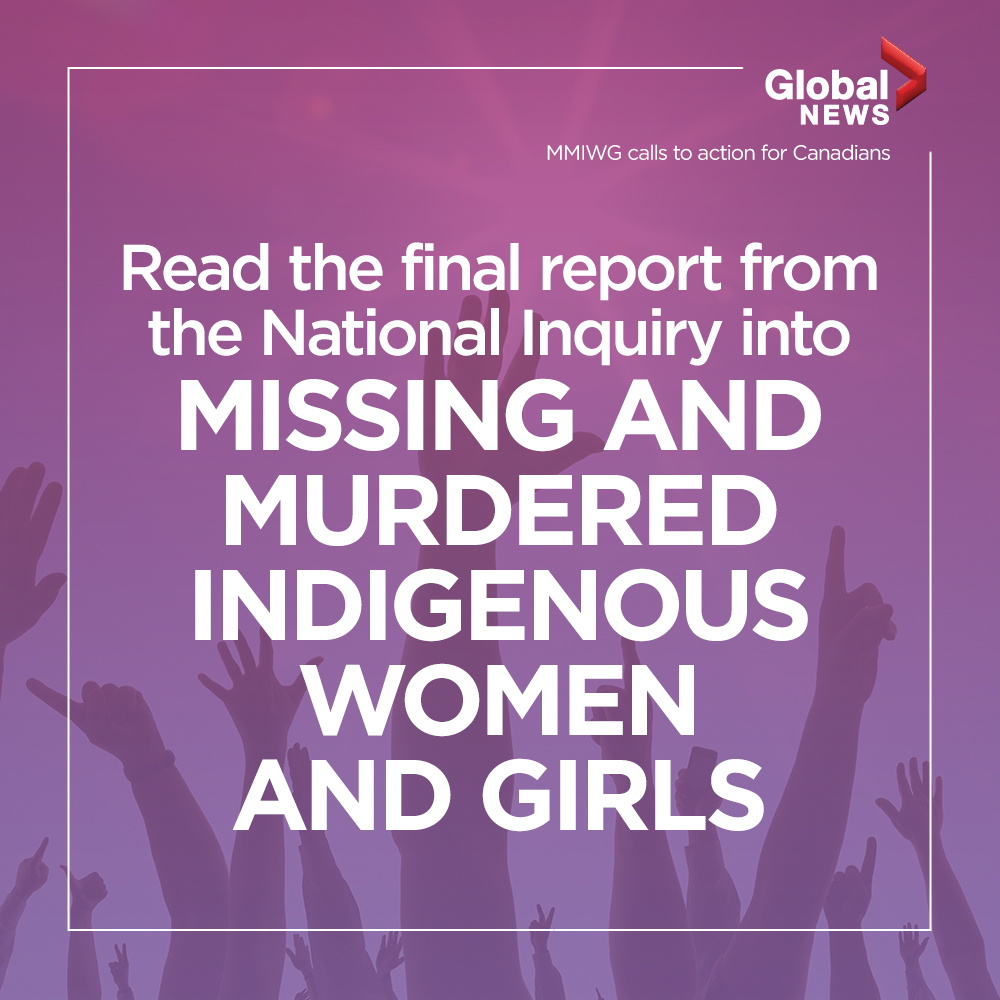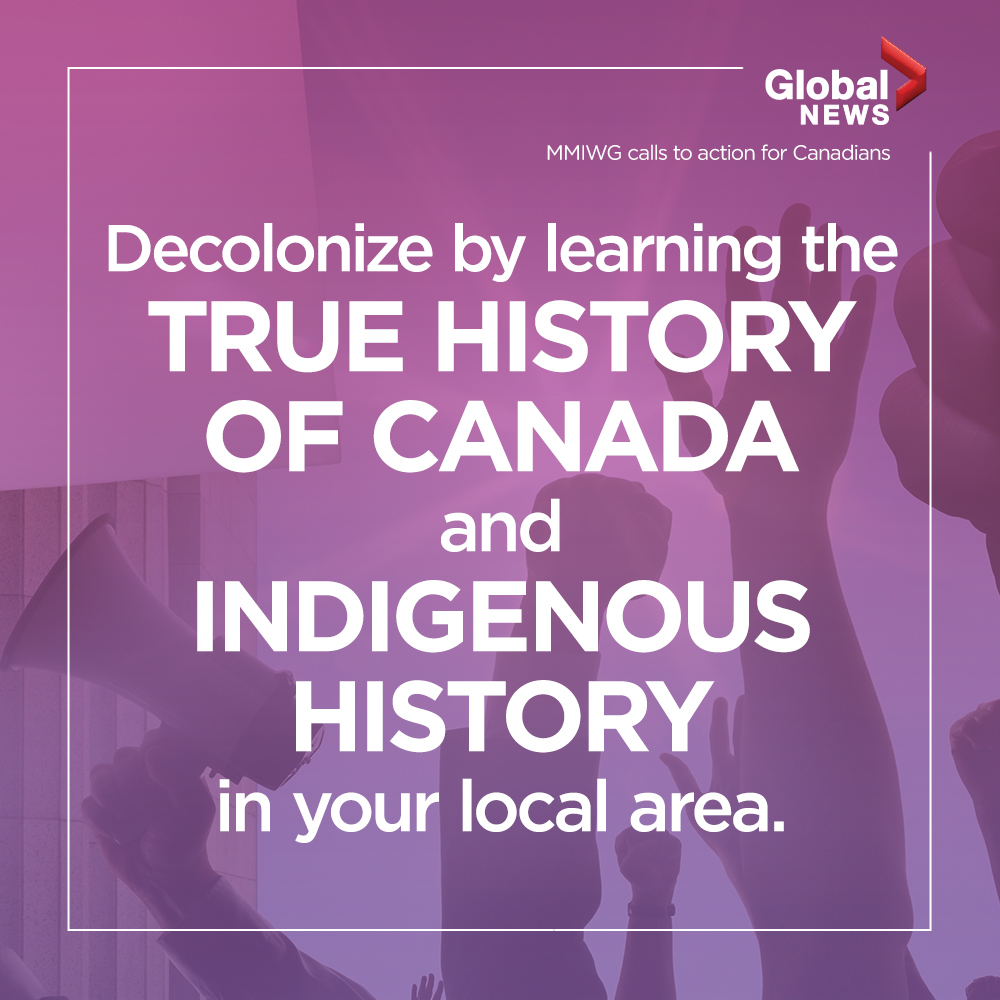The 231 recommendations are peppered with words like “immediately” and “urgently.” More than one recommendation, the painstaking result of years of consultation and relived traumas, serves as a reminder that successive Canadian governments sit atop a heaping pile of unimplemented recommendations.

The Royal Commission on Aboriginal Peoples, the Aboriginal Justice Inquiry of Manitoba and the Truth and Reconciliation Commission — the National Inquiry into Missing and Murdered Indigenous Women and Girls (MMIWG) calls back to all three and more.
The national action plan the federal government promised would be in place this June has been delayed, ostensibly because of the coronavirus pandemic. The government is asking Indigenous women and girls and LGBTQ2S people to wait.
But for what? So many of the recommendations of the MMIWG report’s predecessors are unfulfilled even now; far from offering a reprieve, the pandemic has exacerbated systemic Indigenous health concerns.
“It’s a really shortsighted and not a very robust approach to on one hand be wanting to talk about improving the health and welfare, particularly in times of pandemic, for Indigenous people but on the other hand not recognizing that numerous commissions and reports have actually done the work already of here’s what you need to do,” says Tara Williamson, an Anishinaabekwe/Nehawyowak research fellow with the Yellowhead Institute and a senior researcher at the University of Victoria’s Indigenous law unit.
“That’s the very nature of colonial inequality,” says Si’Yam Lee Maracle OC, a writer, poet and member of the Sto:lo Nation.
“What they’re consistently saying is any issue you have comes after Canadians get what they need, and that’s what we’re objecting to.”
If it isn’t the coronavirus pandemic, Maracle says, it’s some other excuse.
“We are working to end this ongoing national tragedy and continue to do what is right and necessary to honour missing and murdered Indigenous women, girls and LGBTQ and two-spirit people,” said Emily Williams, press secretary for Carolyn Bennett, minister of Crown-Indigenous relations, in an emailed statement.
“Although the realities of living in a time of pandemic has changed the manner by which partners are engaging on a national action plan at this time, we are employing innovative ways to continue the work.”
Meggie Cywink wants to know how the pandemic, which was only declared in March, could have impacted the nine months of work preceding it.
“It’s really unfair,” says Cywink, whose sister Sonya Cywink was pregnant when she was murdered in August 1994. Her killer is still at large.
“What have they been doing?”
Cywink is part of a group of families whose loved ones have gone missing or been murdered who wrote an open letter to mark the one-year anniversary of the final report.
Families need to play a leading role in developing an action plan for it to succeed, according to the letter, which critiques the federal government’s approach so far as “neglect(ing) the people who hold the most direct and accurate information regarding this tragedy.”
If those families are brought to the forefront of the organizing, the letter says, “We will not have to wait until June 3, 2070 for a plan of action.”

In her emailed statement, press secretary Williams said the plan is being “co-developed in the spirit of the guiding principle ‘nothing about us, without us’” and will include “the views of family members.”
But it feels like so much waiting with so little by way of resolution, says Cywink. She questions the government’s ability to tackle the MMIWG inquiry’s 231 recommendations when it has yet to complete the 94 calls to action from the Truth and Reconciliation Commission nearly five years ago.
Ian Mosby, an assistant professor of history at Ryerson University, has been tracking Canada’s implementation of the 94 recommendations annually since December 2016.
With his colleague Eva Jewell, Mosby wrote a more comprehensive analysis last December, illustrating how some of the calls to action are ongoing, meaning they can be considered complete some years and incomplete the next. As of that 2019 analysis, nine of the 94 recommendations were considered complete.
“It’s a lot of rhetoric,” says Cywink. “A lot of broken promises.”
Ultimately, “what we often see is that the interests of Indigenous people continue to be weighed less than the interests of the larger Canadian public,” says Williamson.
“Doublespeak” is evident throughout the pandemic, she says. So many jobs have been halted, but industrial work camps — tied explicitly in the MMIWG report to poor health for Indigenous women — continue operating, having been deemed “essential.”
Nation-to-nation agreements need to be prioritized and self-determination needs to be recognized, she says — not just when it suits the government.
Add to that comments made by Alberta’s energy minister, Sonya Savage, on a podcast recently about how economic turmoil during the pandemic might actually favour pipeline construction.
“Now is a great time to be building a pipeline because you can’t have protests of more than 15 people,” Savage said of the Trans Mountain Expansion project. “Let’s get it built.”
Resource extraction can go ahead, but the national action plan cannot? An unsurprising blow, says Williamson.
“Expectation should go nowhere but up (because of COVID-19), but instead we see it diminishing and being used as an excuse to not address those other issues.”
It’s telling, too, she says, that the federal government seems happy to cede to self-determination when it comes to First Nations setting up checkpoints and protecting their own communities from the spread of COVID-19, but not when it comes to approving or rejecting resource development projects.
It’s the economic focus that really worries Sherry Pictou, a Mi’kmaw scholar from Bear River First Nation who’s joining Dalhousie University’s law and management faculty this summer.
“What I’m scared about with the final report, as well as all the other reports before it, is there seems to be an analogy that ‘Oh, we have to bring them up to the standards of the rest of Canadians,’ and the answer to that is more economic development,” Pictou says.
“It’s remarkable that despite what we’re facing and what the Missing and Murdered Indigenous Women final report has highlighted, we still have some really strong women leading the fight, particularly to save sources of food and water.”
In her emailed statement, press secretary Williams said all governments “must ensure that our actions to address MMIWG account for a COVID-19 reality for these women.”
But in the absence of a national action plan, what can Canadians do now? Maracle is so very tired of this question.
Look to the United States for a moment, she says, and you’ll see that there are white people and non-Black people of colour participating in nationwide demonstrations over police brutality against Black people sparked by the killing of George Floyd.
“If you really want to do something, you will, that’s the thing,” Maracle says. “I think (those non-Black protesters) thought to themselves: ‘I don’t want to live in a racist country, that’s not how I want to bring my children into this world.’”
As a starting point, Williamson suggests reading Chapter 4 of the MMIWG inquiry’s final report. It’s called “Colonization as Gendered Oppression.”
It provides an overview of colonization that matters because, in the words of the report itself, “an essential and ultimately empowering part of making meaning and of healing (for families) came with learning about the broader historical forces and policies that shaped their individual experiences.”
Frankly, Williamson says, “One of the starting points for a large majority of Canadians still is knowing the true history.”
The truth, Maracle says, is that Sto:lo land, like many other nations’ land, was taken from them and then sold cheaply in the late 19th century to everyone but Indigenous people.
“We got nothing, nothing but poverty, death and disease.”
Once you know the truth, she says, non-Indigenous Canadians need to work for Indigenous equality.
“They have to insist on it. They have to wage a struggle for it. If they don’t, it’s not going to happen,” she says.
“They have to want it. They have to think, ‘This is about me. This commission makes it plain that we’re all a bunch of a–holes and thieves, we don’t want to be that, we want to live up to the nice idea that we had of ourselves.’”
Maracle will keep pushing for equality, but it isn’t because she’s harbouring some hope that Canada will change.
“I have no choice but to fight for it. I’m the person suffering from this the most so I have to fight for it,” she says.
“If a train’s coming at you and you’re tied to the track, you do what you can, you chew off your own foot to get off the track. It’s not about hope, it’s about survival.”










Comments